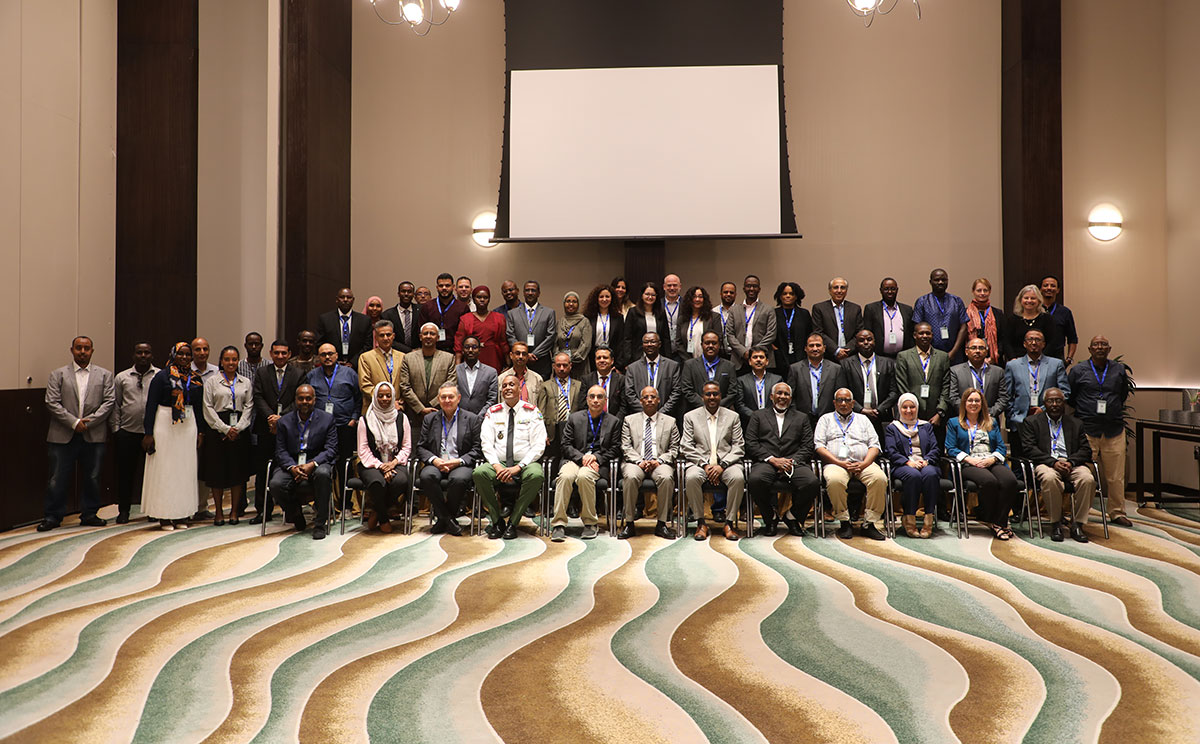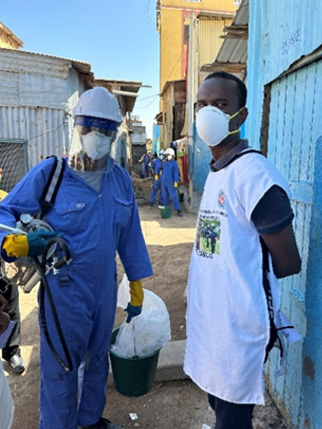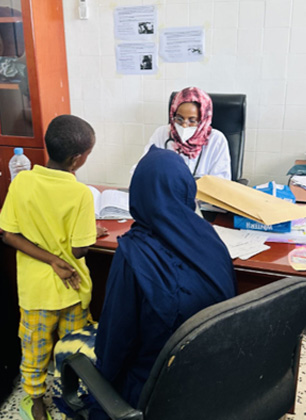Regional meeting of HANMAT malaria and vector control programme managers

Djibouti City, 9–12 December 2024, A meeting of malaria and vector control programme managers from member countries of the Horn of Africa Network for Monitoring Antimalarial Treatment (HANMAT) was held in Djibouti City from 9 to 12 December 2024. It was organized by the WHO Regional Office for the Eastern Mediterranean in collaboration with WHO headquarters and the WHO Regional Office for Africa. The meeting brought together delegates from Djibouti, Ethiopia, Saudi Arabia, Somalia, South Sudan, Sudan and Yemen, as well as experts and international partners, to review progress and challenges in malaria control and elimination across the participating countries.
Attending organizations included the Armauer Hansen Research Institute, Baylor University, Centers for Disease Control and Prevention (CDC) Atlanta, Intergovernmental Authority on Development, International Organization for Migration, King Salman Humanitarian Aid & Relief Center, London School of Hygiene & Tropical Medicine (University of London), Naval Medical Research Unit EURAFCENT, UNICEF and University of Liverpool.
 Photo credit: SM. Al-EryaniThe meeting was opened by the Minister of Health of Djibouti, who emphasized the growing challenge of the urban malaria vector, Anopheles stephensi and highlighted Djibouti’s efforts to combat malaria, including partnerships with research institutions to develop new tools for vector control. He called for increased regional collaboration and technical support to achieve malaria elimination.
Photo credit: SM. Al-EryaniThe meeting was opened by the Minister of Health of Djibouti, who emphasized the growing challenge of the urban malaria vector, Anopheles stephensi and highlighted Djibouti’s efforts to combat malaria, including partnerships with research institutions to develop new tools for vector control. He called for increased regional collaboration and technical support to achieve malaria elimination.
During the meeting, participants discussed the regional threats to malaria control and elimination, including drug and insecticide resistance, HRP2/3 gene deletions, invasive disease vectors such as Anopheles stephensi and Aedes aegypti, and the impact of climate change on the spread of these disease vectors and transmission of the major vector-borne diseases, as well as funding constraints.
The meeting also focused on developing country-specific plans for drug resistance monitoring, HRP2/3 gene deletion management, and insecticide resistance and vector control strategies for sustainable progress towards malaria elimination. Updates were provided on promising solutions such as malaria vaccines, anti-malarial treatments and novel vector control tools.
 Photo credit: Fahmi YusufParticipants also had the opportunity to observe examples of Djibouti’s approach to malaria case management and vector control during field visits to local health facilities and vector surveillance and control sites. This included a visit to an insectary and an introduction to the use of genetically modified mosquitoes as a new vector control intervention in the country.
Photo credit: Fahmi YusufParticipants also had the opportunity to observe examples of Djibouti’s approach to malaria case management and vector control during field visits to local health facilities and vector surveillance and control sites. This included a visit to an insectary and an introduction to the use of genetically modified mosquitoes as a new vector control intervention in the country.
The meeting concluded with a call for political commitment and the allocation of domestic funding, and other recommendations on adopting a multisectoral approach to strengthening integrated disease surveillance systems, updating integrated vector management plans to include novel vector control tools and generating local evidence on their effectiveness. Community engagement, cross-border collaboration and the timely sharing of data were all highlighted as being essential for the prevention and control of malaria and other vector-borne diseases.








